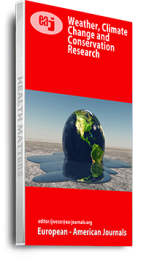Conversations on climate change have existed across various historical times. Ancient Greek philosopher, Aristotle, who is touted to be the earliest authentic scientists in history, made some valuable contributions in the understanding of climate and climate systems. However, it was his protégé, Theophrastus, who later on advanced scholarly arguments on the possibilities of climate dynamism. Nonetheless, climate change has only emerged as the most predominant theme of all discourses on environment in recent times. There has arguably been no single workshop or conference on environment in the last ten years that discussions and presentations on climate change have featured. The scenario in Kenya depicts a population familiar with the term climate change yet it is far from understanding the phenomenon. An argumentative dilemma regarding the basis of climate change communication in Kenya is therefore unavoidable. This paper therefore undertakes to interrogate the philosophical propositions that underpin climate change communication with a view of reinvigorating the conceptualization and execution of climate change communication in Kenya. Apparently, their indigenous knowledge perspectives of climate, the basic education curriculum, and the media communication channels inform the Kenyan population’s understanding of climate change. These imperatives cannot hence be avoided when it comes to interrogating climate change communication in the country. It is therefore imperative to reengineer the way climate change knowledge is managed and disseminated; if at all, this knowledge is to enhance Kenyans’ understanding of the climate change phenomenon.
Keywords: Climate Change Communication, Climate Change Phenomenon, Climate Variability

